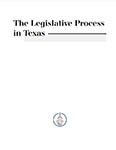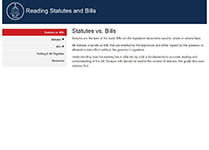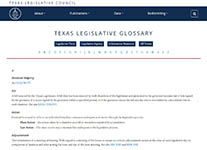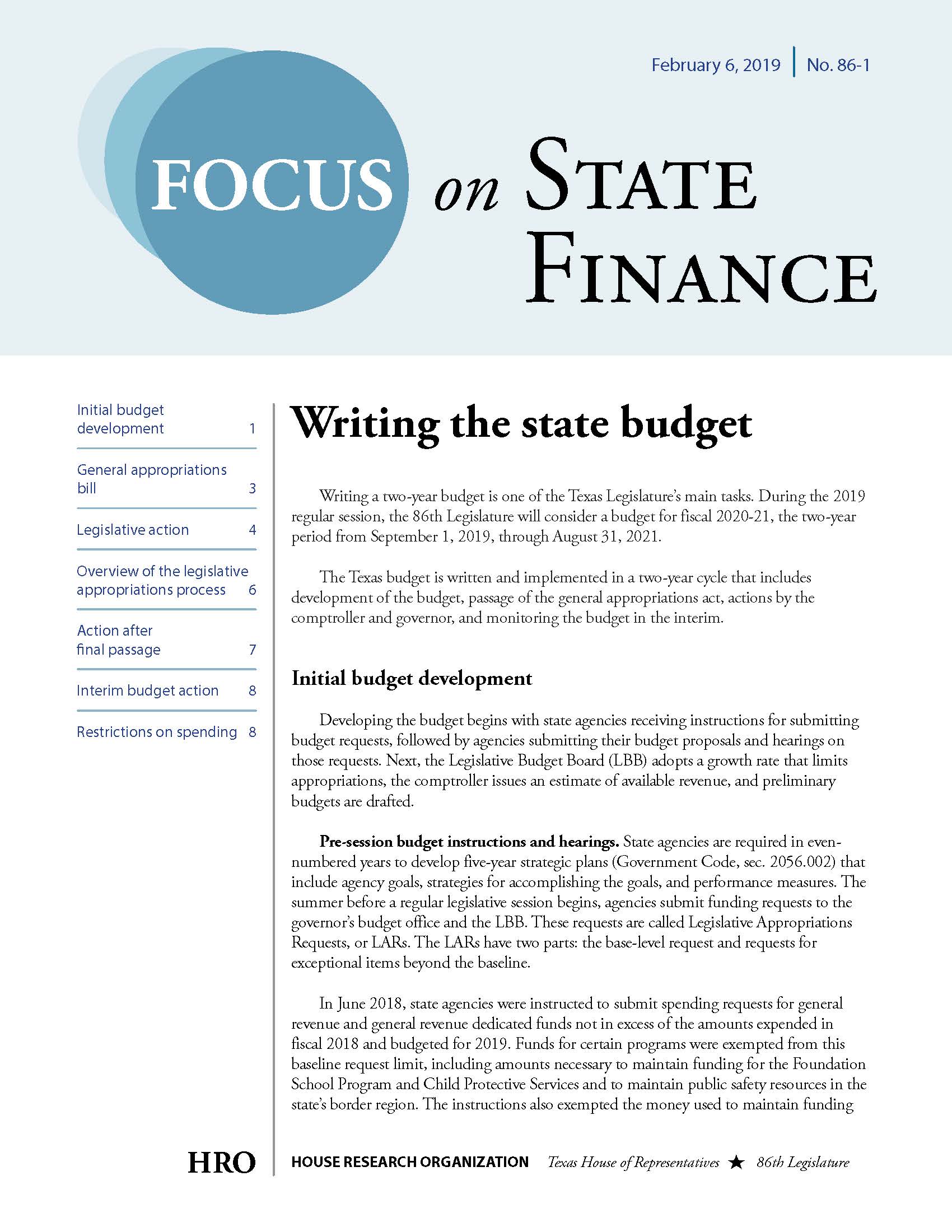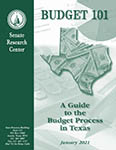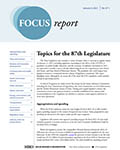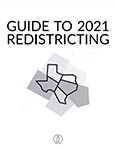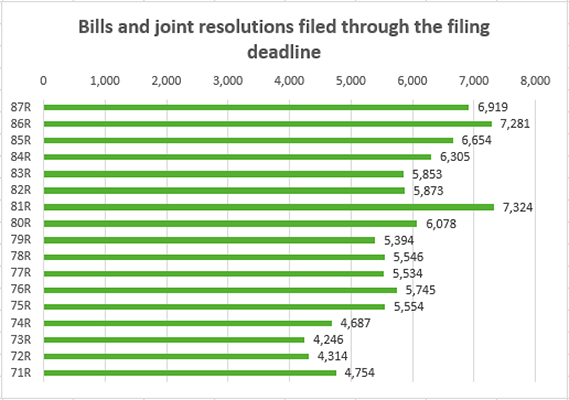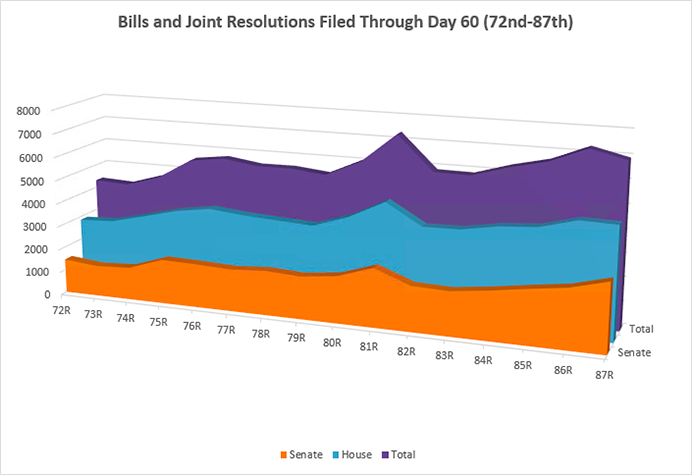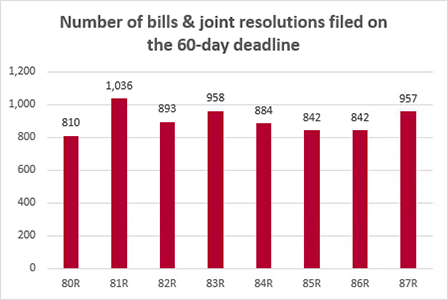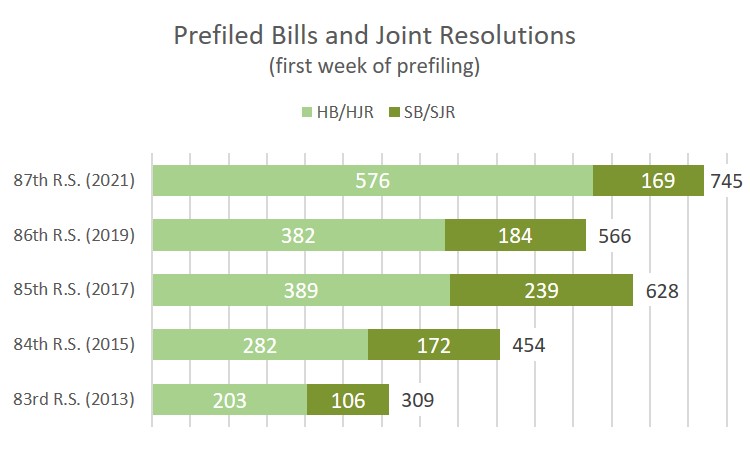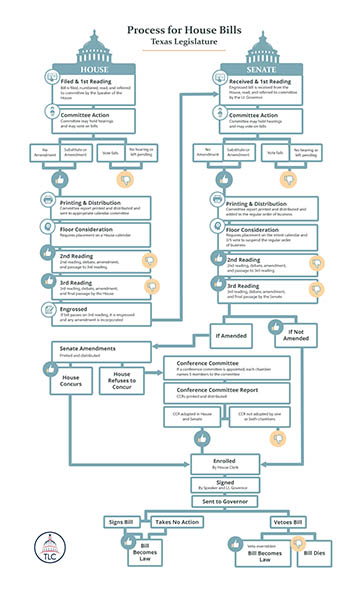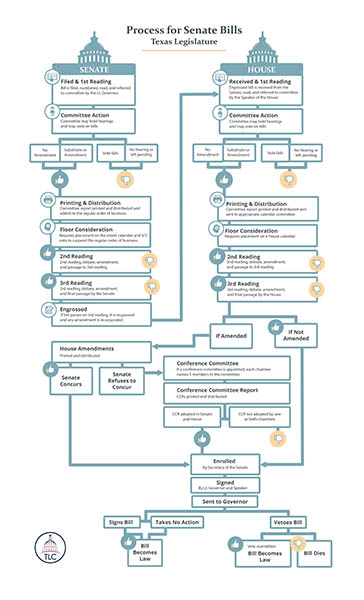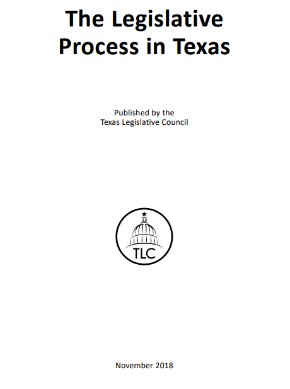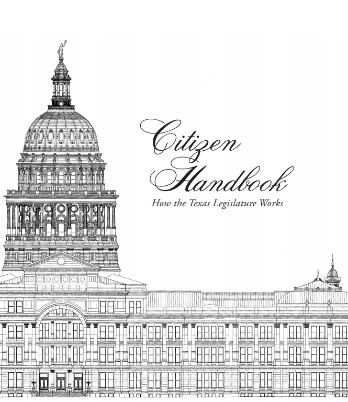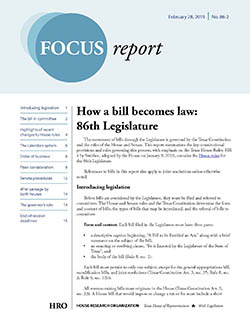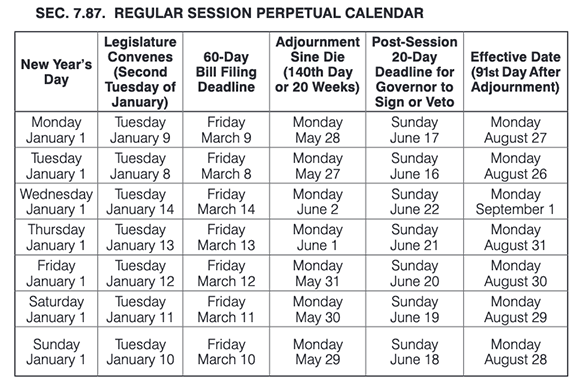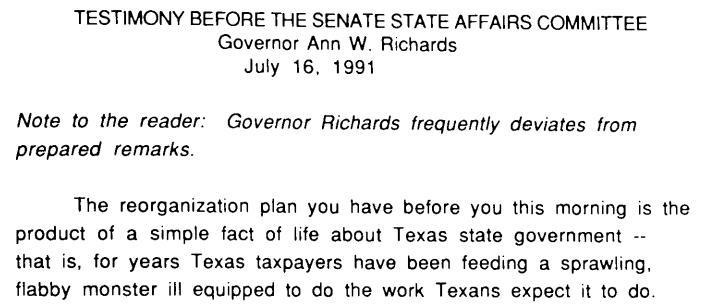Bill Statistics, 133rd Day
May 25
Bill statistics comparing the 133rd day of the 87th and the 86th Regular Sessions are below. For information about what happens to a bill after it passes, please see our Legislative FAQ page. To learn more about the legislative process and see bill statistics from earlier points in the 87th Regular Session, check out some of our previous blog posts.
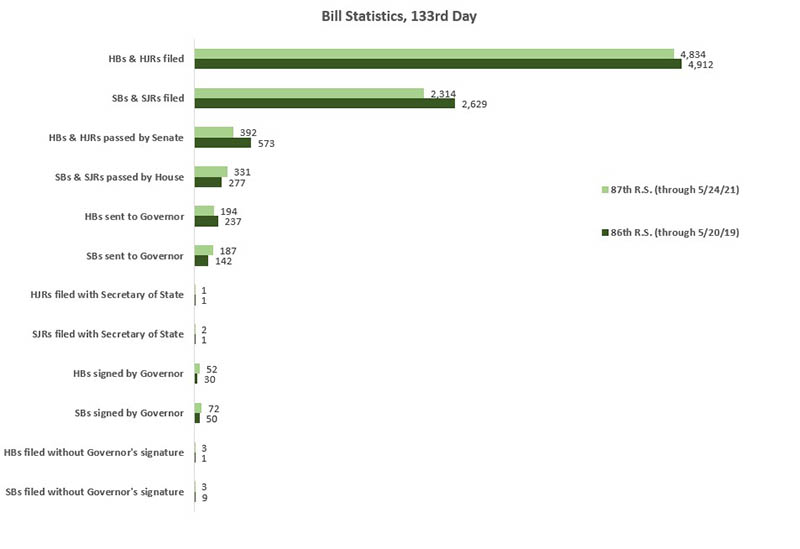
Bill statistics for the period of November 9, 2020 — May 24, 2021, are below:
| House Bills (HBs) & House Joint Resolutions (HJRs) |
Senate Bills (SBs) & Senate Joint Resolutions (SJRs) |
|
| Filed | 4,834 | 2,314 |
| Reported out of committee |
1,926 |
746 |
| Passed by chamber of origin | 1,261 | 672 |
| Referred to committee in opposite chamber | 1,157 | 671 |
| Reported out of committee in opposite chamber | 777 | 576 |
| Passed opposite chamber | 392 | 331 |
| Signed by the Governor | 52 | 72 |
| Filed without the Governor's signature | 3 | 3 |
| Vetoed by the Governor | 0 | 1 |

